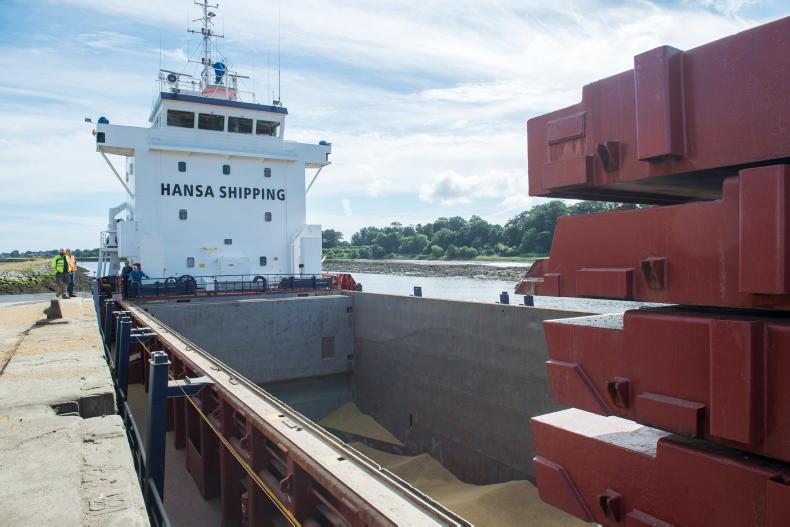Government regulations and policies are the number one item stressing farmers out, a report by the ESRI has shown.
More than 800 farmers were asked about their work-related stress, which was measured in terms of concern about workload, paperwork, Government regulation and bad weather.
The farmers said Government regulation and policy was the number one cause of work-related stress, followed by farm paperwork in second place.
The third-biggest cause of stress cited by farmers was financial matters, followed by workload in fourth place.
Work-related stress
1. Government regulations and policies 2. Farm paperwork 3. Financial matters 4. Workload The ESRI study – Risk Taking and Accidents on Irish Farms – analysed Health and Safety Authority (HSA) farm safety survey data and found that farmers had a medium level of work-related stress.
Contrary to expectations, work-related stress tended not to vary by farmer or farm type.
Farmers farming between 20ha and 30ha had lower stress levels than farms under 20ha
There were no major differences in work-related stress levels between age groups, marital status, presence of children, part-time working or type or size of farm.
The only significant difference was that farmers farming between 20ha and 30ha had lower stress levels than farms under 20ha in size.
Farmer distress
The report also delved deeper than work-related stress to measure the level of farmer distress.
Distress was measured by asking the farmer how often he or she had felt cheerful, calm and relaxed, active and vigorous, feeling rested in the morning and that life was filled with things of interest. The scale was coded to range from one (low distress) to five (high distress).
The average score was towards the low end of the spectrum at 1.55.
Distress and taking risks on-farm
Where the farmer had high levels of distress, the odds of that farmer improperly storing chemicals were five times higher and the odds of not getting help with difficult tasks were nearly three times higher.

However, the ESRI report authors cautioned against making a direct link between farmer distress and farmer risk-taking.
“Farmers experiencing distress may be less likely to seek help with difficult tasks, or it might be that both the experience of distress and difficulty getting help may be related to another underlying factor, such as social isolation,” they warned.
Listen: taking care of farmers’ health, Aussie style
Farmer Writes: the target of coming through the spring ‘mentally unscathed’
Listen: focus on heart disease in farmer health research
Computer chaos: IT woes at the Department
Government regulations and policies are the number one item stressing farmers out, a report by the ESRI has shown.
More than 800 farmers were asked about their work-related stress, which was measured in terms of concern about workload, paperwork, Government regulation and bad weather.
The farmers said Government regulation and policy was the number one cause of work-related stress, followed by farm paperwork in second place.
The third-biggest cause of stress cited by farmers was financial matters, followed by workload in fourth place.
Work-related stress
1. Government regulations and policies 2. Farm paperwork 3. Financial matters 4. Workload The ESRI study – Risk Taking and Accidents on Irish Farms – analysed Health and Safety Authority (HSA) farm safety survey data and found that farmers had a medium level of work-related stress.
Contrary to expectations, work-related stress tended not to vary by farmer or farm type.
Farmers farming between 20ha and 30ha had lower stress levels than farms under 20ha
There were no major differences in work-related stress levels between age groups, marital status, presence of children, part-time working or type or size of farm.
The only significant difference was that farmers farming between 20ha and 30ha had lower stress levels than farms under 20ha in size.
Farmer distress
The report also delved deeper than work-related stress to measure the level of farmer distress.
Distress was measured by asking the farmer how often he or she had felt cheerful, calm and relaxed, active and vigorous, feeling rested in the morning and that life was filled with things of interest. The scale was coded to range from one (low distress) to five (high distress).
The average score was towards the low end of the spectrum at 1.55.
Distress and taking risks on-farm
Where the farmer had high levels of distress, the odds of that farmer improperly storing chemicals were five times higher and the odds of not getting help with difficult tasks were nearly three times higher.

However, the ESRI report authors cautioned against making a direct link between farmer distress and farmer risk-taking.
“Farmers experiencing distress may be less likely to seek help with difficult tasks, or it might be that both the experience of distress and difficulty getting help may be related to another underlying factor, such as social isolation,” they warned.
Listen: taking care of farmers’ health, Aussie style
Farmer Writes: the target of coming through the spring ‘mentally unscathed’
Listen: focus on heart disease in farmer health research
Computer chaos: IT woes at the Department












SHARING OPTIONS